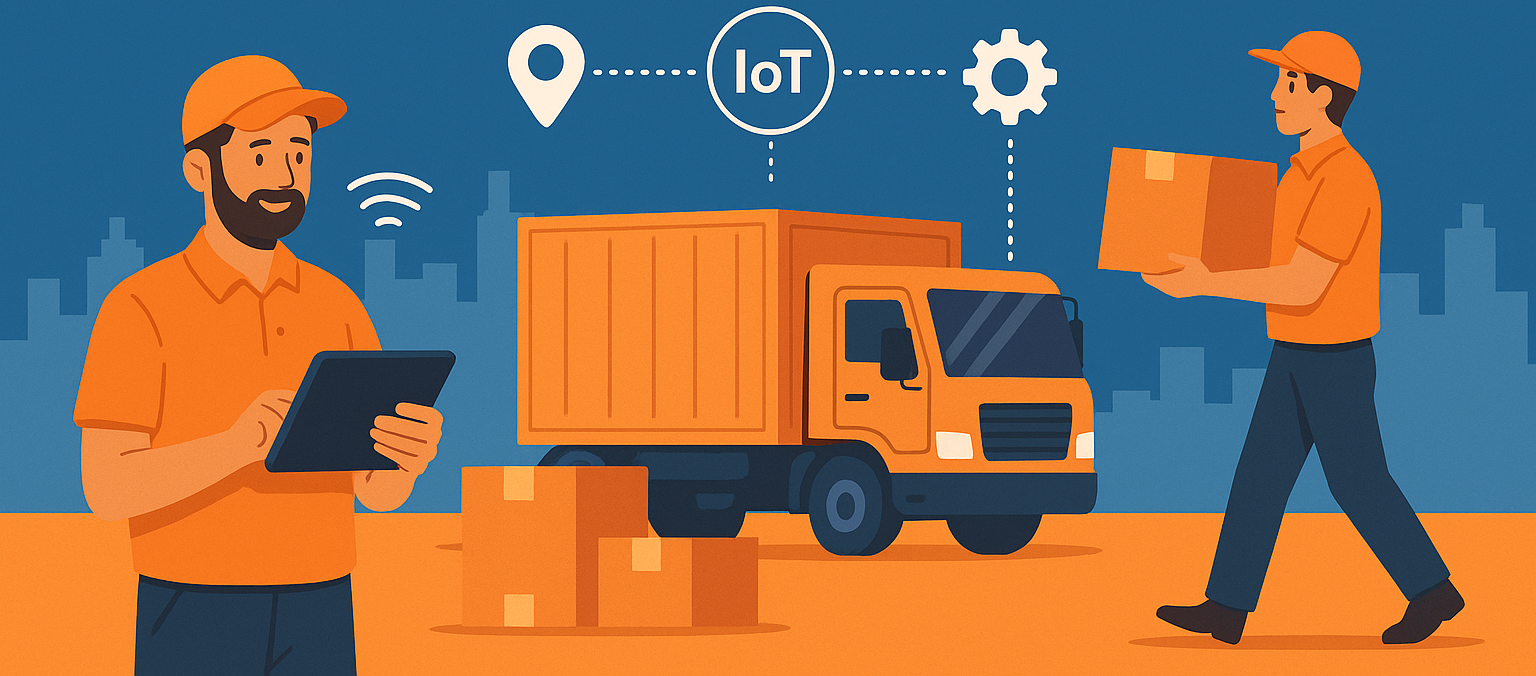Blog on RFID Technology and IoT Solutions
Blog Home
Why Indian Logistics Companies Are Investing in IoT Solutions for Efficiency & Growth
23 July 2025Indian logistics industry has witnessed a dramatic transformation over the last few years, driven by the rise in e-commerce, consumer demand, and digitalization. Among the various technologies driving this revolution, **IoT (Internet of Things)** has emerged as a key driver. Indian logistics companies are quickly adopting IoT solutions to enhance operation efficiency, lower costs, improve safety, and support real-time decision-making.
Let’s learn why IoT is at the forefront of innovation in Indian logistics, and how it’s helping organizations achieve new levels of efficiency and growth.
The Logistics Landscape in India: A Quick Overview
India’s logistics sector, which has a value of more than //$250 billion, is predicted to grow at more than 10% CAGR in the next few years. However, the sector also suffers from some severe challenges such as:
- Poor fleet management
- Transportation cost that is too high
- Invisibility of supply chains
- Delays in manual processing
- Poor warehouse design
To solve them, logistics companies are seeking IoT-enabled smart solutions that centre on automation, visibility, and data-driven insights.
What Is IoT in Logistics?
IoT logistics consists of a network of smart devices (e.g., sensors, GPS tracking devices, RFID tags, etc.) that collect, send, and receive data in real-time during transportation and warehousing operations. The systems provide actionable information that allows organizations to streamline operations, reduce costs, and enhance customer satisfaction.
Why Indian Logistics Companies Are Investing in IoT Solutions
1. Real-Time Fleet Tracking and Route Optimization
With GPS and telematics sensors, fleet can now be tracked in real time by logistics companies. IoT makes easy:
Driver behaviour tracking
Fuel consumption analytics
Route planning based on traffic and weather
Idle time and unauthorized stoppage savings
This contributes significantly to cost reduction and quicker deliveries
2. Predictive Vehicle Maintenance
IoT sensors fitted on trucks and vans can monitor various aspects of engine health, tire pressure, battery voltage, etc. With predictive maintenance alerts, companies can:
- Avoid unexpected failures
- Reduce vehicle downtime
- Prolong vehicle life
- Save maintenance costs
This is especially valuable in India where long distances on highways and harsh conditions can age fleets quickly.
3. Better Supply Chain Visibility
IoT-enabled devices like RFID tags and smart labels allow real-time tracking of products from warehouse to delivery. This provides:
- Accurate Estimated Time of Arrival (ETA)
- Alerts for delay, theft, or damage
- Improved inventory planning
For customers and business partners, this means **greater trust and transparency**
4. Smart Warehouse Management
IoT-enabled warehouses utilize automation, sensors, and robotics to:
Track levels of stock in real time
Track temperature and humidity levels for sensitive products
Automate picking and packing processes
Detect safety issues or operational limitations
This leads to faster order fulfilment and enhanced resource utilization.
5. Data-Driven Decision Making
With a constant stream of data, logistics companies can leverage IoT analytics to:
- Forecast demand trends
- Examine delivery timetables
- Monitor KPIs in real-time
- Plan pricing and resource allocation
This shift from reactive to proactive decision-making keeps businesses competitive in a continuously evolving marketplace.
Real-Life Example: Indian Startups & Enterprises Implementing IoT
Some Indian logistics companies such as Rivigo, Delivery, BlackBuck, and Gati have invested in IoT technology. They have seen benefits such as:
- 20–30% savings in operating costs
- Improved SLA (Service Level Agreement) compliance
- Real-time customer alerts through IoT-based mobile apps
Conclusion
With changing customer needs and increasing competition, Indian logistics companies can no longer rely on the past. **IoT is not just a technology upgrade—it’s a matter of strategy. Whether it’s reducing operational inefficiencies or enabling enhanced customer experiences, IoT solutions are laying the groundwork for a smarter, faster, and more reliable logistics network in India.
Investment in IoT today is an investment in long-term efficiency, growth, and industry leadership.
- Intellistride.com
- Blog
- Why Indian Logistics Companies Are Investing in IoT Solutions for…